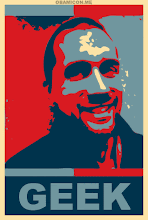How many of you checked your email before your first cup of coffee? (90% of hands raise)
One year ago, Steve asked the same question, and only about 30% of hands raised. Just an initial example of just how much things have changed...
The job we have is not to get more information to our audience, but less...interesting.
"Between the dawn of civilization through 2003, 5 exabytes of data was created. We now create that much information every two days."
The fact that we collectively know this proves that something has changed in society, business, and knowledge. Thinking about what this means to our end users: If you went to your favorite restaurant and wanted to order what makes you most happy, and the restaurant said instead of what you wanted, we're going to serve you everything on the menu and you must eat it before you leave...how would that feel? THAT's what's happening with information right now.
In march 2010, 24 hours of video was being uploaded to YouTube per minute. One year later, 48 hours per minute. So when someone says "We'll put it on YouTube...everyone will see it", you can call BS. It's happening, and it's happening QUICKLY...
The US is 6th in the world for Internet Usage, behind countries like Nigeria and Iran. Whoa...
Long way around, the point of this keynote is this: There's A LOT of stuff out there...it's hard to organize all of it.
Say Goodbye To Search
We've all googled ourselves at one time or another...he he he.
But, seriously, if we Google ourselves, we'll get some results that are us, but A LOT that are not: Men will result women, women/men, dogs, etc...it comes down to the amount of crap that's out there. So how do we search?
Go to Facebook...find the mutual friend...basically, reverse engineer the search process.
Say Hello To Curation
Let's say you're making a cookbook, and you have to put together a set of images of a healthy set of meals. They're cohesive, they're colorful, they look awesome. Now, you want to do a page of desserts...same thing. But how would a computer know how to identify pictures of pasta and pictures of dessert as coherent?
Steve ran a search for "Picture of a Pussy cat and a Man"...
...let's just say he didn't get the result he was looking for.
But it proves a point...Content is still king, but it is now increasingly being created by everyone, and it needs Curation to STAY king.
Curation is King
Publishers are positioned to lead curated web content. In a world where information is being developed at breakneck speed, it CAN NOT be "our" job to filter through all the garbage. Publishers are people that find information and broadcast it. Damn...looks like we're all publishers (Steve cites that retweeting is, technically, publishing).
The frozen asset in each of our organizations is getting the information we need from our colleagues and sorting through it all. But, again, we are ALL publishers.
The world needs thoughtful filters. (<-- not revolutionary, but...wow)
Curation - 3 Powerful Ideas
1.) Choose Your Digital Clothing
This morning, we got up, and picked what we're going to wear, based on what we're doing today and what we want to present to the world. Every day now, too, we are all picking our Digital Clothing. What's that mean? Simple - As Steve puts it, he reads 4-500 Tweets a day. How many does he re-tweet? 5-10....tops. Become the filter that does not exist. (BRILLIANT)
2.) Listening is More Powerful Than Speaking
You should ABSOLUTELY have news alerts, etc. for the organization you work for, things you are interested in, and so on.
3.) In a Noisy World, Readers Hunger for Clarity
Your visitors will make content for you, based on your listening.
What Is Your Curation Equation?
1.) Define quality for your readers. Pretty simple...
2.) Context is key - Always publish things contexutally. It is critically important that your readers know the information you recommend, but why, contextually, it matters.
3.) Well curated sites tell a story. If you publish information without some kind of story behind it, readers/learners will slowly start to float away. You need a larger narrative.
4.) Have a theme and embrace it.
The volume of information that we're all responsible for managing isn't going to slow down anytime soon. Today, we're all creators, and this creates and amazing/scary opportunity for all of us.
The Web Becomes a Human Network
It's not Facebook.
It's not Google.
It's not Apple.
It's us.
Summary
That closing statement pretty much said it. It's something that I think we started to know with Web 2.0, but hearing it in such stark terms is heavy.
Subscribe to:
Post Comments (Atom)


thanks for a great summary & thoughts on this presentation - really helped me in the backchannel! :) Please keep posting!
ReplyDeleteMeg
Will do what I can, Meg! Thanks for the kind words! Glad you're enjoying!
ReplyDelete